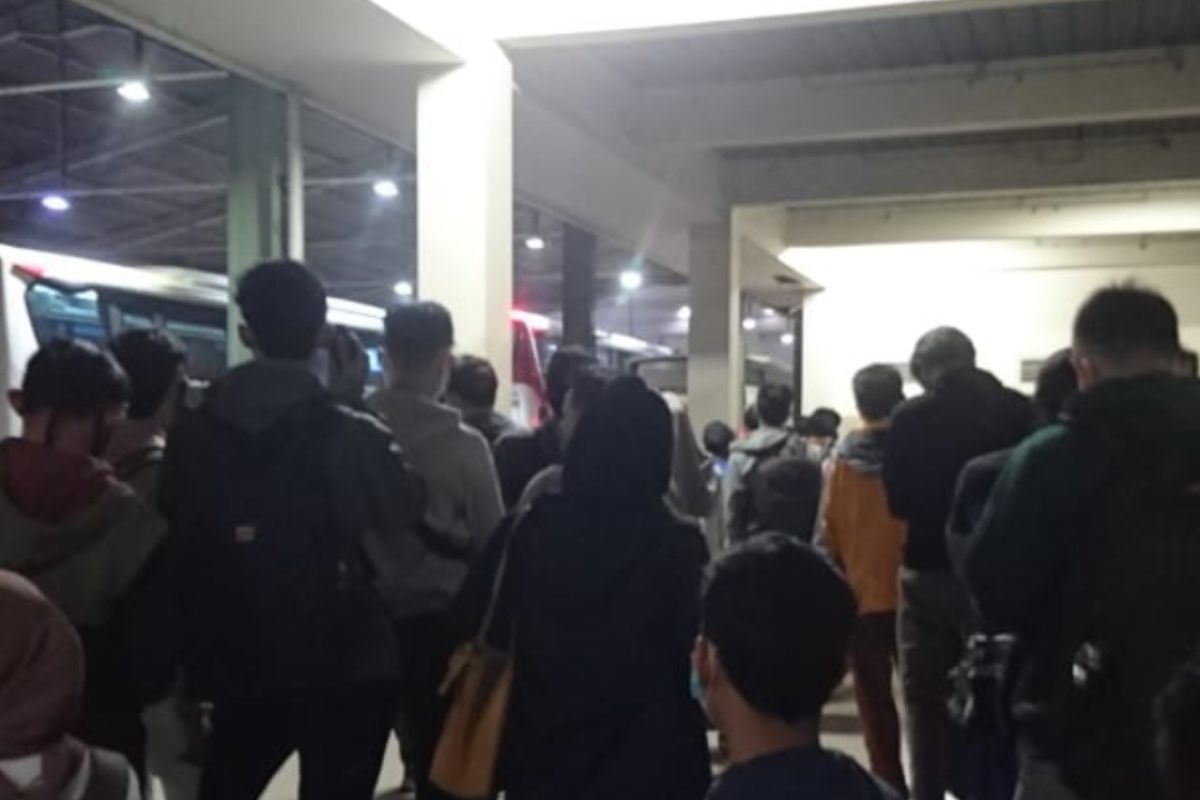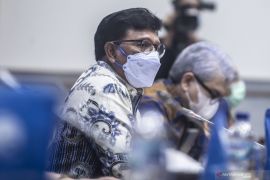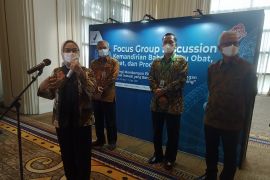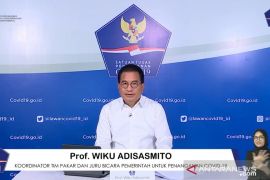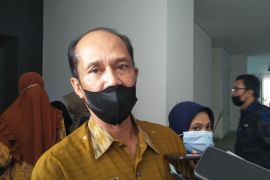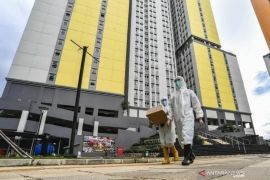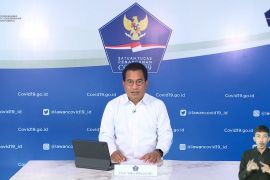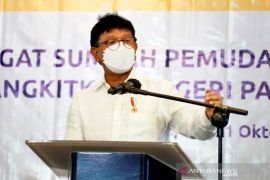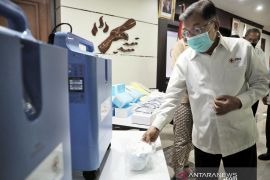Public discipline in almost all regions has shown a decline. In early November, public adherence to (the rule on) wearing face masks had reached 86.18 percent, but in the next few weeks, it started to decline.Jakarta (ANTARA) - It has been 10 months since the COVID-19 pandemic engulfed Indonesia, disrupting public health, weakening the economy, and setting off a domino effect on other sectors.
The impact of the pandemic caused by the SARS-CoV-2 virus has not fully been overcome. The public is also appearing to grow weary of this difficult and protracted situation.
Thus, the COVID-19 vaccine has become the last hope for dealing with the crisis.
The government has taken several steps to prevent COVID-19 transmission, including formulating health protocols that prescribe wearing masks, washing hands with soap, maintaining physical distance, and avoiding crowds.
Additionally, the government has imposed a large-scale social restriction (PSBB) policy to limit human activities that could potentially cause crowding and trigger a spike in infections.
It has also disbursed funds to business agents to speed up economic recovery and provided social security through direct cash assistance to increase the purchasing power of the people.
The first batch of COVID-19 vaccines recently arrived in the country and will be administered to all citizens free of charge.
Preparations for vaccination
The Indonesian government has set aside a budget of Rp73 trillion for the procurement of COVID-19 vaccines, Coordinating Minister for Economic Affairs, Airlangga Hartarto, disclosed during a talk show on "Outlook 2021”, held in Jakarta on December 24, 2020.
The budget has been sourced from reserve funds of Rp18 trillion and the leftover health budget for 2020 of Rp36.4 trillion for the national economic recovery program.
Hartarto said the vaccines will be procured from different companies. Nearly 1.2 million doses of the vaccine produced by Chinese pharmaceutical firm Sinovac have already arrived in Indonesia and another 1.5 million doses will arrive in 2021. About 15 million doses of vaccine raw materials will be shipped later on.
The government is now waiting for emergency-use authorization for the vaccines from the Drug and Food Control Board (BPO) so it can start the vaccination program.
Before issuing its permit, the BPOM will need to scrutinize data from completed clinical tests of the vaccine performed by other countries. In the next few days, the BPOM is expected to receive the results of clinical trials of the Sinovac vaccine conducted by Brazil. The first and second phases of the clinical testing of the Sinovac vaccine were conducted in China, and Phase 3 clinical trials were carried out in Bandung, West Java.
"With the three types of data combined by BPOM scientifically, we hope the emergency-use authorization can be obtained in January (2021)," Hartarto said.
Once the permit is issued, the vaccine can be administered to the public. With one person needing two shots of the vaccine, nearly 600 thousand of 1.2 million vaccine doses will be used, the minister said.
Besides Sinovac, the Health Ministry has also designated five other vaccines for use in Indonesia, in accordance with the Health Minister’s Regulation of No. 9860/2020.
The five vaccines are being produced by Astra Zeneca, Sinopharm, Moderna, Pfizer and BioNTech, in addition to the vaccine produced by state-owned pharmaceutical firm PT Bio Farma (Persero).
However, as the wait continues for BPOM's permission, citizens appear to be growing a little careless about following the health protocols.
The euphoria over the arrival of COVID-19 vaccines, which many seem to consider a cure-all, appears to be making people overlook the threat the virus continues to pose.
This is evident from a report from chairman of COVID-19 Handling Task Force, Lt. Gen. Doni Monardo, which states public discipline has been declining in terms of the observance of COVID-19 health protocols in nearly all Indonesian regions.
This laxity has sparked a surge in new infections, he said during an online talk show on the post-pandemic outlook for Indonesia, held here on Thursday (December 24).
"Public discipline in almost all regions has shown a decline. In early November, public adherence to (the rule on) wearing face masks had reached 86.18 percent, but in the next few weeks, it started to decline," Monardo noted.
The task force pegged public adherence to the rule on wearing masks at 80.48 percent on December 24, 2020, while discipline in maintaining physical distancing was recorded at 76.87 percent compared to 81.87 percent in November.
"We have to understand that the government cannot work alone. [Fighting COVID-19] It needs massive movement involving all components of the society, especially non-formal leaders who have direct influence over the public," Monardo observed.
He said he believes the country will be able to win the battle against the coronavirus if all parties work together. In East Java, the number of novel coronavirus infections dropped sharply in November this year due to the efforts of the provincial and district administrations and volunteers, he pointed out.
"There is only one key to reduce the cases: (maintain) discipline, adhere to health protocols. Because we know how it (the virus) spreads. If we cannot maintain physical distance, wear masks, we can be infected soon," he cautioned.
He then urged the public to adhere to the health protocols.
President Joko Widodo has also warned that the availability of COVID-19 vaccine cannot be taken as a guarantee against infection for all people.
"We want people to remain adhere (to the health protocols). It has been nine months and two weeks since we imposed a national quarantine on March 13, 2020. Sixteen provinces have still recorded an increase in new cases, and the cases in 18 provinces have declined. They (Infections) have increased in most regions in Java," Monardo informed. (INE)
Related news: Government takes precautionary measures against new coronavirus strain
Related news: Task Force ensures regional readiness to distribute COVID-19 vaccines
EDITED BY INE
Editor: Fardah Assegaf
Copyright © ANTARA 2020
